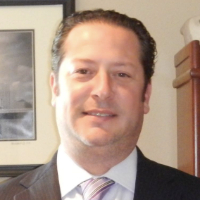Garrison Misdemeanor Lawyer, Texas
Sponsored Law Firm
-
 x
x

Click For More Info:
-
Law Office of Robert R. Jones III
2411 Emancipation Ave, Suite 202, Houston, TX 77004» view mapCriminal Defense Expert Representation for Reasonable Rates
If you need representation, call me 24/7.
800-883-8760
Not enough matches for Garrison Misdemeanor lawyer.
Below are all Garrison Criminal lawyers.
Jeffrey Dale Adams
✓ VERIFIEDDUI-DWI, Family Law, Personal Injury, Consumer Bankruptcy, Business
When you’re facing a legal challenge, there’s no substitute for the guidance of an experienced, skilled lawyer who has had success in cases just l... (more)
John Richard Heath
Juvenile Law, Domestic Violence & Neglect, , DUI-DWI, White Collar Crime
Status: In Good Standing Licensed: 54 Years
Reynaldo Padilla Morin
DUI-DWI, Federal Appellate Practice, Immigration, Domestic Violence & Neglect,
Status: In Good Standing Licensed: 30 Years
Andrew Ernest Jones
Estate Planning, Bankruptcy, Family Law, Criminal, Commercial Real Estate
Status: In Good Standing Licensed: 10 Years
Sean Ferol Hightower
DUI-DWI, Administrative Law, Federal Appellate Practice, Domestic Violence & Neglect,
Status: In Good Standing Licensed: 10 Years
Jeremy Smith Willis
Family Law, Criminal, Social Security
Status: In Good Standing Licensed: 23 Years
Stephanie K. Stephens
Family Law, Divorce & Family Law, Criminal
Status: In Good Standing Licensed: 34 Years
 Robert Jones San Antonio, TX
Robert Jones San Antonio, TX AboutLaw Office of Robert R. Jones III
AboutLaw Office of Robert R. Jones III Practice AreasSpecializations
Practice AreasSpecializations

